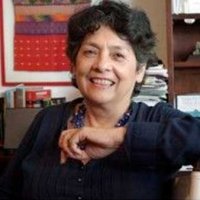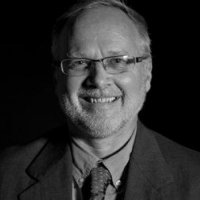Political Transition in Venezuela: Next Steps and the Implications for U.S. Policy
This important discussion focused on the evolving political situation in Venezuela in light of President Hugo Chávez’s prolonged absence from the country.
- Margarita López Maya, Universidad Central de Venezuela
- The Honorable Patrick Duddy, former U.S. Ambassador to Venezuela
- Risa Grais-Targow, Eurasia Group
- David Smilde, University of Georgia and Washington Office on Latin America
Speakers' Biographies:
Ambassador Patrick D. Duddy is the former U.S. Ambassador to Venezuela and a Visiting Senior Lecturer in Duke University’s Fuqua School of Business. Prior to his assignment in Venezuela, Ambassador Duddy served as Deputy Assistant Secretary of State for the Western Hemisphere. A career member of the Senior Foreign Service who holds the rank of Minister Counselor, he has also served in a number of foreign posts, including as U.S. Consul General in Sᾶo Paulo, Brazil, Chargé d’Affaires at the U.S. Embassy in Brasília, Deputy Chief of Mission in La Paz, Bolivia, Counselor for Public Affairs at the U.S. Embassy in Panama as well as a member of the U.S. delegations to Paraguay, Costa Rica, the Dominican Republic, and Chile. Ambassador Duddy received his undergraduate degree from Colby College and Master’s degrees from Northeastern University and the National War College.
Risa Grais-Targow is an associate in Eurasia Group's Latin America practice with a focus on the Andean region. Prior to joining Eurasia Group, Ms. Grais-Targow covered Latin American economies for financial clients at the Institute of International Finance. She also focused on Latin America at the U.S. Department of the Treasury's Office of the Western Hemisphere and at the Albright Stonebridge Group, a global strategy firm. Previously, she covered macroeconomics and financial markets as a reporter for Dow Jones Newswires in Santiago, Chile. Ms. Grais-Targow holds a Master's degree in international economics and Latin American Studies from The Johns Hopkins School of Advanced International Studies (SAIS), and a bachelor's degree in political studies and Latin American Studies from Bard College.
Margarita López Maya is senior professor at the Center for Development Studies (Centro de Estudios para el Desarrollo) of the Central University of Venezuela. Her areas of expertise include Venezuela’s contemporary history and politics, political parties, and popular protests, and participatory innovations in “Bolivarian” Caracas. She has served on the Board of Directors of the Consejo Latinoamericano de Ciencias Sociales (CLACSO) and has held numerous fellowships at such institutions as the University of Notre Dame, Oxford University, Columbia University, and the Woodrow Wilson International Center for Scholars. Her major publications include Del Viernes Negro al Referendo Revocatorio (2006); Protesta y cultura en Venezuela: Los marcos de acción colectiva en 1999 (2002); and EEUU en Venezuela: 1945-1948 (1996). She received her undergraduate degree in History and a Ph.D. in Social Sciences from the Central University of Venezuela.
David Smilde is a senior fellow at the Washington Office on Latin America (WOLA). He is a Professor of Sociology at the University of Georgia, edits the journal Qualitative Sociology, and moderates the WOLA blog "Venezuelan Politics and Human Rights." His research focuses on politics, human rights and culture in Venezuela. He is currently working on a book manuscript entitled Venezuela’s Transition to Socialism: Politics and Human Rights under Chávez, 2008-2012. He has taught at the Universidad
Central de Venezuela and the Universidad Católica Andrés Bello. From 2010-2012 he was the Chair of the Venezuelan Studies Section of the Latin American Studies Association. Professor Smilde’s co-edited volume (with Daniel Hellinger), Venezuela’s Bolivarian Democracy: Participation, Politics and Culture under Chávez (Duke, 2011), looks at forms of citizen participation in contemporary Venezuela. His book (with Margarita López Maya and Keta Stephany) Protesta y Cultura en Venezuela: Los Marcos de Acción Colectiva en 1999 (FACES-UCV, 2002) examines street protest in the first year of the Chávez government.
Moderator
Dr. Cynthia J. Arnson is director of the Latin American Program at the Woodrow Wilson International Center for Scholars. Her work focuses on democratic governance, conflict resolution, citizen security and organized crime, international relations, and U.S. policy in the Western hemisphere. Arnson is a member of the editorial advisory board of Foreign Affairs Latinoamérica, the Spanish-language edition of the distinguished journal Foreign Affairs. She is a member of the advisory boards of Human Rights Watch/Americas and the Social Science Research Council’s Conflict Prevention and Peace Forum. She served as associate director of the Americas division from 1990-1994, covering Central America and Colombia. Her most recent edited book is In the Wake of War: Democratization and Internal Armed Conflict in Latin America (Woodrow Wilson Center and Stanford, 2012).
Speakers

Professor, Center for Development Studies (CENDES), Universidad Central de Venezuela

Hosted By

Latin America Program
The Wilson Center’s prestigious Latin America Program provides non-partisan expertise to a broad community of decision makers in the United States and Latin America on critical policy issues facing the Hemisphere. The Program provides insightful and actionable research for policymakers, private sector leaders, journalists, and public intellectuals in the United States and Latin America. To bridge the gap between scholarship and policy action, it fosters new inquiry, sponsors high-level public and private meetings among multiple stakeholders, and explores policy options to improve outcomes for citizens throughout the Americas. Drawing on the Wilson Center’s strength as the nation’s key non-partisan policy forum, the Program serves as a trusted source of analysis and a vital point of contact between the worlds of scholarship and action. Read more
